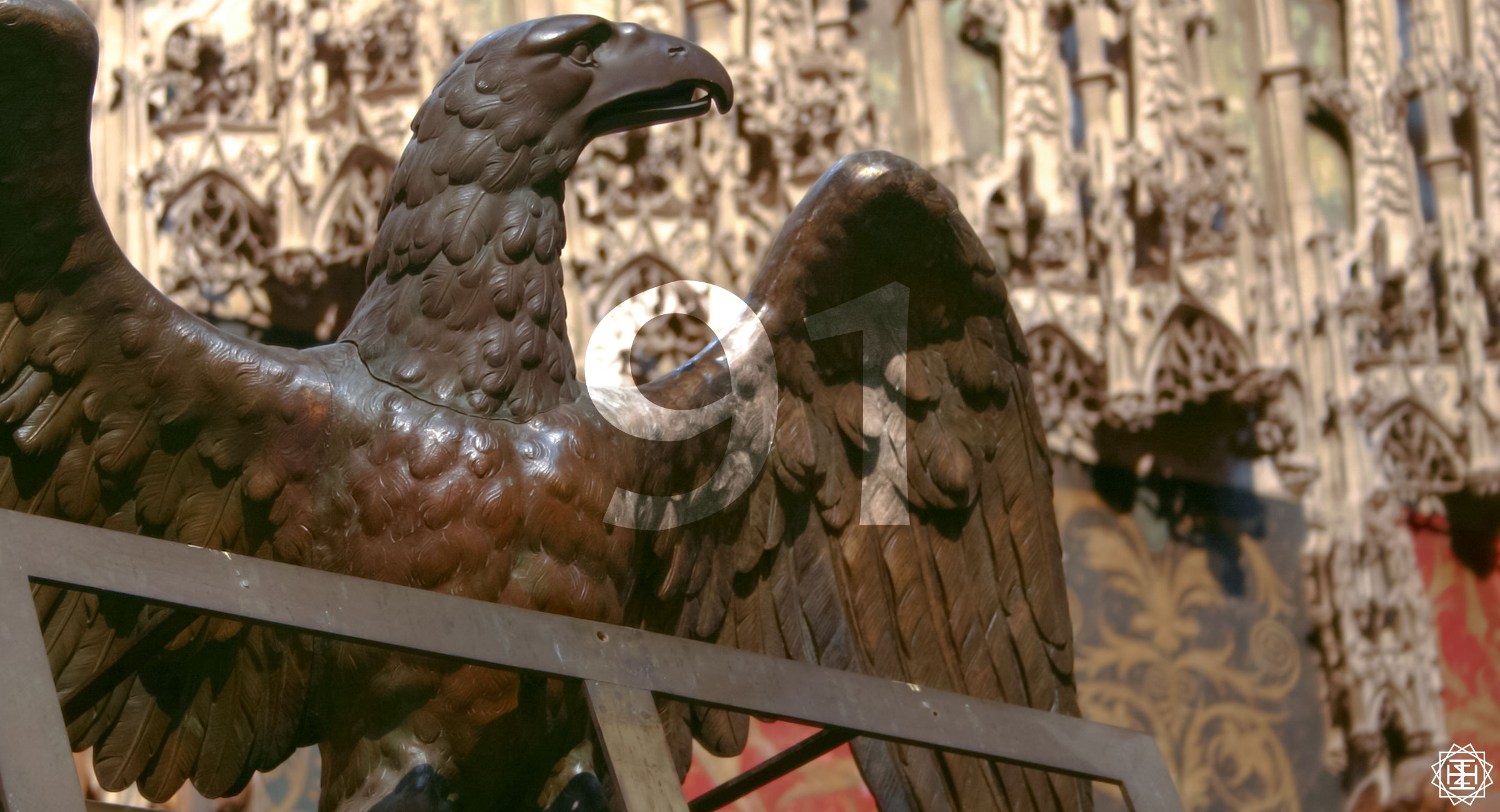Protected by the Shelter of the Most High – Translating Psalm 91
There is a deep love and appreciation for the Lord in this psalm. That seemingly against the odds they have survived an ordeal and are praising God for their protection throughout. It is not possible for us to know the circumstances of this protection, but the psalmist exhorts us to follow their example in putting our trust in the shelter of God.
Psalm 91
Protected by the Shelter of the Most High
1Whoever lives in the shelter of the Most High, * will find rest in the shadow of the Almighty. 2I will say of the LORD, "My refuge and my fortress, * my God, my trust is in Him." 3For it is He who rescues you from the fowlers snare, * and from the deadly plague. 4He will cover you with His feathers, † and under His wings you will take refuge, * His faithfulness is a shield and wall. 5You will not fear the terror by night, or the arrow that flies by day, † 6 or the plague that stalks in darkness, * or the destruction that strikes at noon. 7A thousand will fall at your side, † and ten thousand at your right hand, * but you will stay out of reach. 8You will only look with your eyes, * and watch as the wicked are punished. 9For you have made the LORD, my refuge, * the most high, your fortress. 10No evil will touch you, * nor plague approach your tent. 11For He will give his angels orders concerning you, * to protect you in all your ways. 12On their hands they will carry you, * so you never strike your foot against a stone. 13On the lion and cobra you will tread, * and trample the young lion and the dragon. 14"Since they have loved Me, I will rescue them. * I will protect them, because they have known my name. 15They will call to Me, and I will answer them; † I will be with them in trouble, * I will rescue and honor them. 16With a long life I will satisfy them, * and I will show them my salvation."
Protected by His Shelter
Within these 16 verses there are many ways you could break up this psalm to better understand it. The first main section I see is book ended by the psalmist speaking about the shelter of God from verse 1 through verse 10. I see this as being the central argument that the psalmist is making. This is due to the frequency it comes up in the opening two verses. Throughout this psalm there are different types of shelters that include: shelters, fortresses, walls, tents.
Each of these evokes a separation from others, from the elements, and something that is not naturally occurring like a river, cave, or a mountain. It is within this context of living or dwelling with God in this shelter provided by God that the psalmist makes their claims of protection.
These are not claims of universal protection from these maladies or circumstances. There is not a claim that God will always keep you from becoming sick in a plague, from harm by your enemies, or the more general evils of the world. The author is inviting us to desire with them to live alongside the Lord in His fortress.
The last two verses of this initial section almost answer the question implied by the opening two verses. What would happen if God was my refuge and fortress?
9For you have made the LORD, my refuge, *
the most high, your fortress.
10No evil will touch you, *
nor plague approach your tent.
The Temptation of Jesus – Do not test God.
In the next section of verses from 11 until 13 we find ourselves a verse which may sound familiar. In the Gospels of Mathew, and Luke, we read about the temptations Jesus endured with his 40 days in the wilderness. It is in one of those moments that Jesus finds himself standing at the peak of the temple, and being told to jump off. That he would not even touch the ground if he did.
11For He will give his angels orders concerning you, *
to protect you in all your ways.
12On their hands they will carry you, *
so you never strike your foot against a stone.
Jesus replies that “You should not put the Lord, your God to the test.” The reality is that none of us know with certainty what God is or is not doing. We do not know what, if any, orders God has given angels concerning us. Therefore, we ought to not test God in our lives. Rather, to live by faith means that we do not test God, or make undue demands of God.
The Words of the Lord
The final section is a word from the Lord to us. Not all versions you read will have these verses in quotes. This is because the original sources of Greek and Hebrew lacked these marks (along with other grammatical markup). Therefore, it is up to the translators of the texts to discern where quotes should exist. Sometimes it is very clear, and other times it is less clear.
We have selected to make the final three verses a spoken word attributed to the Lord as written by the psalmist. Within these words we see promises that the psalmist believes of the Lord. It is of their experience or hope that they tell us that the Lord will rescue, protect, honor, and give long life to those who call on to Him.
A Word for All
There is nothing in this final section of the psalm which leads us to believe these statements were written in an exclusive and limited way. Instead, the thrust of these statements appears to be for all who would call on the Lord. It is for this reason, and in line with the purposes of our translation, that we have shifted the pronouns from he to they and him to them. The use of inclusive language honors the psalmists intention that all can call on the Lord.
Selecting a Title
The title in Latin is ‘In Protection of the Most High’ (In Protectione Altissimi). Selecting the title for God from the initial line of the psalm is helpful for connecting the title to the psalm itself. I really enjoy that title, but it misses one of the key themes of the psalm – that of shelter. We see many references to shelter, tent, fortress, and walls. For this reason, we have chosen a title which includes both these elements – ‘Protected by the Shelter of the Most High’.
Initial Translation Finished 4 September 2021
Notes
Translations for Urban Monastic are open to refinement and improvement. This has been translated. Yet, this is a reminder that no translation is ever complete. Cultures change, languages change, we better understand the source texts and languages, and adapt them as they get used in context. We will continue to refine and enhance our translations. If you are interested in helping, please let us know!
Photo Credit
Paul Prins on 10 December 2005 in Albi, France


